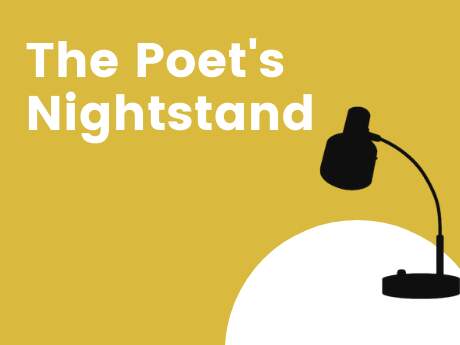The Poet’s Nightstand
The Poet’s Nightstand with A. E. Stallings
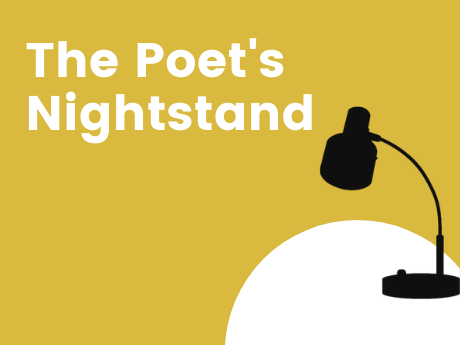
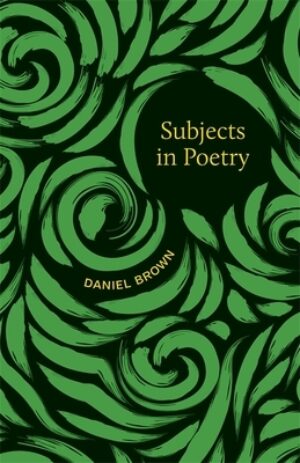
Subjects in Poetry by Daniel Brown
(LSU Press, 2021)
“Subjects” have tended to get a bad rap in poetry ever since a drunk Wallace Stevens challenged Robert Frost: “The trouble with you, Robert, is that you write about—subjects.” (Frost’s tipsy and cantankerous rejoinder was that Stevens wrote about “bric-a-brac.") Daniel Brown’s Subjects in Poetry seems to take up where this “family” argument left off. It’s about what poems “are about.” As the preface states, “The subject of subjects in poetry is like a mountain you’re standing at the base of: so huge you can fail to see it unless you look upward.” Written from a position, then, both of humility and exaltation, this slender book embraces and taxonomizes the variety of subjects in poems—even elusive ones (“some poems that say by evoking,” “some poems that say by addressing.”) It’s true that a lot of the poems looked at here in such affectionate and astute detail are touchstones of mine (so I might be biased), but I found the book immediately useful in thinking about even my own work. Although Brown knows his stuff, meter and form and literary history and rhetorical devices, he eschews theory and jargon. With its reader friendliness, its distilled brevity, its infectious (can I still use that word?) enthusiasms, it seems destined to be a classic, a guidebook that belongs in the hands of students and practitioners alike.
Purchase Book
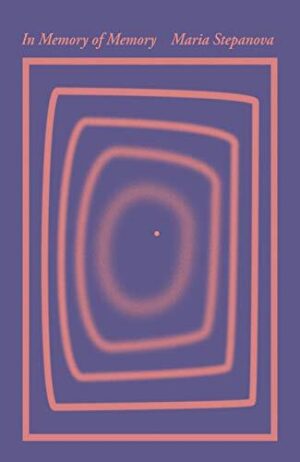
In Memory of Memory by Maria Stepanova, translated by Sasha Dugdale
(New Directions, 2021)
Another book of prose that I have been dipping into is the dense web of remembrance and oblivion, In Memory of Memory, by the Russian poet and journalist, Maria Stepanova, sensitively translated by the poet Sasha Dugdale. Proustian in its detail and expanse, the book “is about” the mechanisms of memory, what triggers it, what eludes it, and how it weaves together the self. Shabby inherited objects, especially those that have washed up from the catastrophic twentieth century of World Wars and Jewish persecution, into the twenty-first, become clues in a sort of mystery: a pornographic photograph, an ugly butter dish, postcards from the dead. (May I also make a pitch here for Dugdale’s own terrific and harrowing book of poems, the 2020 Deformations?)
Purchase Book
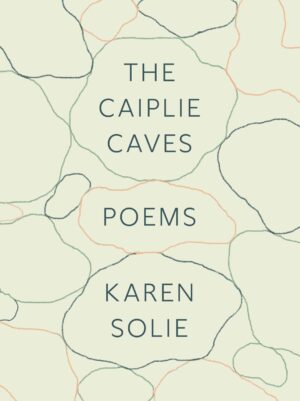
The Caiplie Caves by Karen Solie
(FSG, 2020)
Karen Solie may be one of the most exciting poets writing in North America. If she isn’t better known in the US, it is probably because US poets have a curious blind spot when it comes to their Canadian peers. Her latest, The Caiplie Caves, is framed with pieces in the voice of Ethernan, a seventh-century Irish missionary who goes to Scotland to become a hermit (and whose poems are indicated elegantly by right justification). Interspersed with these are poems in Solie’s own inimitable voice. The poet Greg Williamson once described a “taco index”—that is, whether the world of a poem could conceivably contain a taco or not. (Try it! It is illuminating.) Solie’s poems could contain tacos, and in fact contain crystal meth, barking seals, pathogens, alkaloids, and St. Anthony’s Fire. In one poem she puts “the Ambien in ambience.” Even a minor subject like a memorial to those fallen in “The Battle of May Island”—actually a series of terrible naval accidents in the Firth of Forth shortly after World War I—becomes, in Solie’s hands and under her gimlet eye, something resonant with universal import. “Whose Deaths Were Recorded Officially as Casualties of “The Battle of May Island” ends:
104 killed, a conservative estimate
No enemy engaged but error
In the historical present, a modest commemorative monument
With its back to the sea.
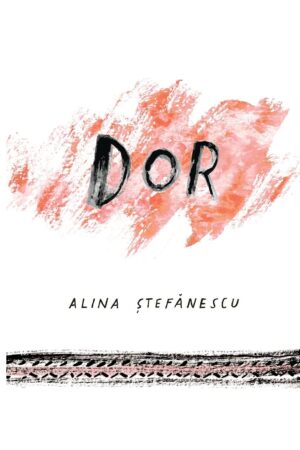
DOR by Alina Stefanescu
(Wandering Aengus Press, 2021)
I am delighted to have got my hands here on an advanced reading copy of DOR, not exactly Stefanescu’s poetic debut (there is a chapbook, and a hybrid collection with poems and short stories), but which certainly feels like a radiant arrival. Born in Romania and reared in Alabama, Stefanescu writes poems that explore a refugee immigrant’s South, a delicious and surprising mix of flavors and observations. Dor “is an Aromanian verb used to designate the action of hurting or aching. Dor is a Romanian noun defined as a state of unsated longing or yearning.” Here are poems about longing and (not) belonging, about sex and motherhood, about Romania and Alabama; in other words, about crossing borders. Let me just quote some phrases to give you an idea of her playfulness, grace, and range: from “Unamerican Litany,” “omnishambles of stars strangled by Birmingham lights”; from “Women at 40,” “Stevie Nick’s voice rattles like a shitty transmission/ but never breaks down”; and from “The Communist at Catholic School: A ‘Multiplechoice’ Test”—how’s that for a title, or a subject?--“You can smell refugees from the way their stories pickle/ from the sourness they leave on the tongue.” (A Stefanescu poem could definitely include a taco, with a Romanian twist.)
Purchase Book
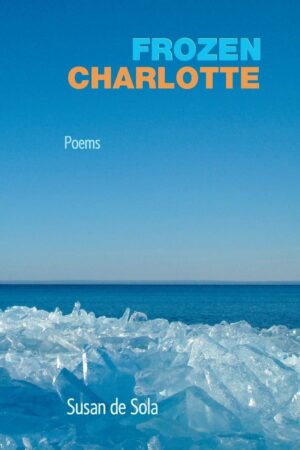
Frozen Charlotte by Susan de Sola
(Able Muse Press, 2019)
American poetry is a small world, the subset of formal poetry even smaller; inevitably, many of the books one is reading are by friends. But for some reason I do not seem to have picked up a signed physical copy of Frozen Charlotte, which came out in 2019, when I was at the conference Poetry By the Sea. Maybe I thought there would be another opportunity. But Susan died—suddenly it seemed to many of us, who did not know about her illness—in October, and now I am left with memories of her voice, her effortless elegance, her quiet humor. An American poet who spent her adult life in the Netherlands, a mother of five (!), Susan came to conferences in the US, where I met her, and sometimes we were together at airports, waiting on trans-Atlantic connections. Maybe the wide range of “subjects” of these poems says something?: “The Light Gray Suit in North by Northwest,” “Camels at the Amsterdam Highway,” “Trotsky’s Cat,” “The Tulips.” (In addition, many poems deal with de Sola’s family history as it intersected, again, with the 20th century—the branch left in Europe extinguished during the Holocaust.) Reading this collection I find myself surprised to find how sensual and sexual so many of the poems are—a quality I had not noticed before in her work. How warm and fragrant and alive.
Purchase Book


